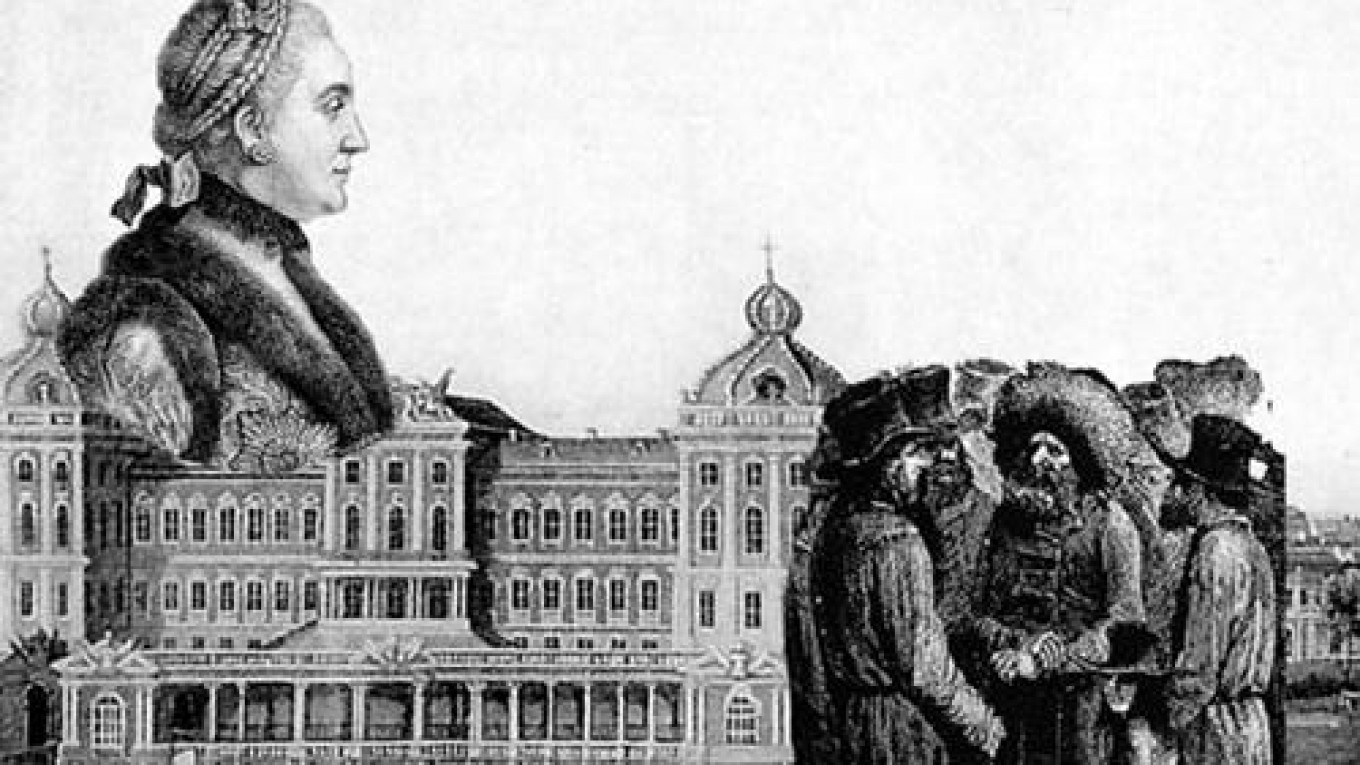Черта оседлости: the Pale of Settlement
When you live in another country and culture for a long time, you pick up so much of the local lore that you forget the rest of the world — i.e., your friends and family at home — don’t know it. Do people really not know that the only proper way to eat caviar is slathered on a piece of buttered bread? How could anyone not know what the White Nights are? Or that Europe becomes Asia just outside Yekaterinburg?
And then, when the world was marking the Holocaust Remembrance Day last week, it turned out that a lot of people didn’t know what Черта оседлости (Pale of Settlement) was — even some people whose ancestors came from there.
It is, to be fair, an unusual phrase. Черта (line, limit, feature) can be used to describe the edge of something, like черта города (the edge of the city). People can live в черте города (within the city limits) or за чертой города (outside the city limits).
Оседлость is related to the verb оседать, which means to settle and can refer to anything that settles down, from silt to human beings. Оседлость means settlement or being settled. The adjective оседлый means settled, as in оседлое население (a settled population), which is in contrast to кочевники (nomads).
So черта оседлости is the boundary of a settled area. This is true, but it is more specifically the area of the Russian Empire where Jews were allowed to live.
Черта оседлости existed in Russia from 1791 when Catherine the Great signed it into existence until the Revolution of 1917. At first it was called, more clearly, черта постоянного жительства евреев (the area of permanent residence for Jews), but in 1835 it began to be called simply Черта оседлости. The area was a huge swath of land in the western and south-western part of the European part of the Russian Empire, from Lithuania down to the Black Sea. Jews were only allowed to live there, with exceptions for some categories of people, like купцы первой гильдии (merchants in the First Guild) or people with higher education. The trick was, of course, that it was almost impossible to get into one of those categories. So at the end of the 19th century there were about 5 million Jews living in Russia, of whom less than 200,000 lived outside the settlement area.
And that explains why your Jewish great-great grandfather — at the time called лицо иудейского вероисповедания (a person of the Jewish faith) — probably didn’t come from St. Petersburg, Moscow, or Perm, but a little town — местечка — in what is now Belarus, Poland or Ukraine.
Now where did the odd English phrase “pale of the settlement” come from? Pale is an old word for a sharp stake— think “impale” — and a paling fence is a fence made up of these stakes. Over time the meaning of pale migrated from the stake to the area enclosed by stakes, i.e. There were several pales in England and other parts of the world, too.
And they gave us the expression “beyond the pale” — something outrageously bad. The idea was that there was order and propriety when you stayed within the pale. If you went beyond the pale, you were doing something daring. Over time, daring morphed into indecent and outrageous.
So now you know. Let’s hope the pales remain a thing of the past.
Michele A. Berdy is a Moscow-based translator and interpreter, author of “The Russian Word’s Worth,” a collection of her columns
A Message from The Moscow Times:
Dear readers,
We are facing unprecedented challenges. Russia's Prosecutor General's Office has designated The Moscow Times as an "undesirable" organization, criminalizing our work and putting our staff at risk of prosecution. This follows our earlier unjust labeling as a "foreign agent."
These actions are direct attempts to silence independent journalism in Russia. The authorities claim our work "discredits the decisions of the Russian leadership." We see things differently: we strive to provide accurate, unbiased reporting on Russia.
We, the journalists of The Moscow Times, refuse to be silenced. But to continue our work, we need your help.
Your support, no matter how small, makes a world of difference. If you can, please support us monthly starting from just $2. It's quick to set up, and every contribution makes a significant impact.
By supporting The Moscow Times, you're defending open, independent journalism in the face of repression. Thank you for standing with us.
Remind me later.








